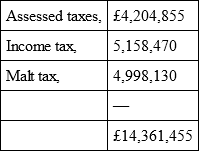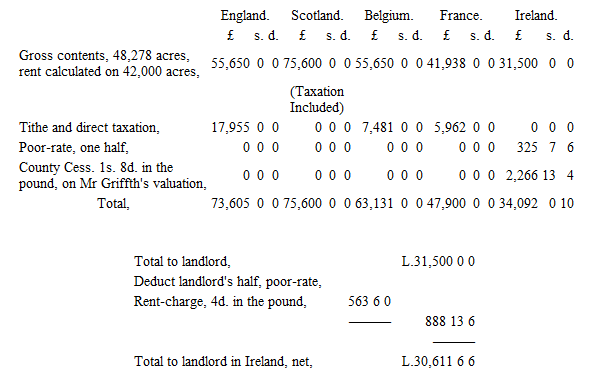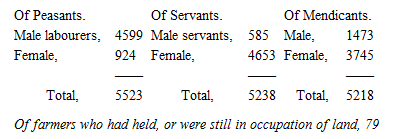 полная версия
полная версияBlackwood's Edinburgh Magazine, Volume 59, No. 367, May 1846
The banners of our country have crossed the Sutlej, and advanced to Lahore. But our present task is done. The policy which has now to regulate the internal condition of a great country, will be better discussed hereafter. We have simply narrated the course of a terrible necessity, which, against the desires of this country, has made the ravages of war a bloody but unavoidable prelude to the beneficent functions of peace. The conflict was not of our seeking. Be the consequences what they may, the Sikhs will have themselves to blame, should it so happen, for the illustration of the maxim, that "when lenity and cruelty play for a kingdom, the gentler gamester is the soonest winner."
1
Becker, a celebrated coiner from the antique, recently deceased in Prussia, —N.B.– His widow carries on the business.
2
Quot Themison œgros autumno occiderit uno. Alas! and there are many Themisons still in Rome; for whose address vide the Guide-Books.
3
Times, December 25, 1845.
4
It is a curious fact, that the only witnesses whose testimony the Earl of Devon ventured to use in support of Lord Stanley's bill, were those of Mr Balfe, chairman of the "committee of grievances;" a discharged dragoon, who was contradicted in almost every statement he made by the most respectable persons on their oaths, and who was obliged to retract some voluntarily; and of Mr Byrne, of the value of whose opinion, or whose statements, we can form some estimate, from the following extract from the evidence of Nicholas Maher, Esq.
Appendix B., No. 1097He is asked, has he read a particular statement of Mr Byrne's? And his answer is: – "I have read the evidence, and I must just state that Mr Byrne is a person to whose evidence I would not give any weight."
5
Ireland – Land is exempt from

This is the net amount of those taxes. The gross amount which is levied off the people will be about fifteen millions and a half, or nearly one third of the total amount of the income of the country, towards which Ireland does not contribute a single shilling.
6
According to the Government survey, Leitrim contains 375,992 acres; the valuation, including the houses of the gentry and shopkeepers, is L.120,000: add 25 per cent, or L.30,000, and we have the fair rent at L.150,000, or under eight shillings an acre.
7
Mr Reade, an extensive landowner, and a gentleman who appears to be perfectly competent to form a correct opinion on the subject, laid before the commissioners, as the result of his own experience, the following statement: —
Comparative Valuation of the Barony of Carberry, co. Kildare, all situated between twenty and thirty miles of Dublin; with two canals passing through it, and consisting of 45,000 acres of good feeding and tillage land, with a similar quantity of equally good land, or nearly so, in England, Scotland, France, and Belgium, originally made in 1828, and since corrected: —

The rent in Ireland was averaged, from personal knowledge and inquiry, at 25s. the Irish acre, equal to 15s. the statute acre. It has not varied essentially since 1828.
In Scotland, the rent was calculated at L.2, 5s. the Scotch acre, equal to L.1, 16s. the statute acre.
In England, the rent was calculated at L.1:6:6 per statute acre.
In Belgium, the rent-value of land is taken as equal to England. The taxation being considerably less than half that of England.
In France, the land is valued at one-fourth less than Belgium. The taxation bearing a near proportion in both countries.
The taxation in Ireland and Scotland is nearly on a par: rather heavier in Ireland.
Taxation in England, including tithes, 8s. 7d. per acre. I believe below the reality.

8
Speech at the Conciliation Hall, in reply to the charges of the Times Commissioner.
9
The following letter, written by Sir David Roche to a Cork agitator of the name of Denny Lane, who accused him of having turned out three hundred families, and said his life had been five times attempted, will show the value which should be set on the assertions of such people, and the treatment which the very best Irish landlords receive: —
"I have bought out a few who were tenants-at-will, forgiving them large arrears of rent, and making them in every instance a present of their year's crop, stock, &c., and either finding them other farms, or giving them money to enable them to enter into other pursuits: such, sir, have been my transactions with the small number who have left my land, none of whom, I dare say, every charged me with harshness or injustice. As you have thought proper to turn public accuser, I beg to refer you to Mr Charles Seegrue, the only gentleman in Cork with whom I have had any transactions regarding tenants, and he will inform you on the determination of his interest in a large farm, how many of his under-tenants I dismissed, and what arrangements were made on that occasion. If I don't mistake, he will state that all were continued on their farms, and that the arrears of rent due, to have been compromised by me, and the tenants forgiven the amount, and a reduction of one-third made on their respective rents, besides building houses for all that required them, and for which no charge was made; and in every other place where I had any arrangements to make with tenants, that similar consideration had been shown; and although I have had large transactions connected with land in the counties of Limerick, Clare, and Kerry, in all of which counties the Devon Commission sat, you will not find a single instance of oppression, or any complaint having been made, much less to the extent of turning out three hundred families, which you have thought proper to charge me with. As to your assertion, that my life has been attempted five times within the last year, I can assure you that no attempt was ever made on my life before the last assizes, and then not for turning out a tenant, but because I refused to assist a tenant to turn out his brother's widow while her husband lay on his bed of death, hardly allowing the body to get cold, when he insisted that I should help him to add the widow's holding to his own."
10
The Appendix to the 10th Report affords some curious and important information as to the classes in which destitution is to be found. The commissioners directed the clerks of the unions to furnish them with lists of the severest cases of destitution which were relieved in the different houses, and the occupations which they had previously followed, and accordingly 870 cases are given in the Appendix by them. It appears the number of males above fifteen years of age relieved in the quarter ending 9th April 1844, was only 11,224.

Thus we see, that the number of servants and vagrants requiring relief, amounted to within three hundred of the numbers of the agricultural labourers, and that the number of those connected with the possession of land, and who had sought relief on account of termination of leases, non-payment of rent, expulsion because they were tenants-at-will, or temporary distress, amounted to the incredibly small number of seventy-nine.
We ought also to add, that in every instance in which a labouring man is stated in those reports to have entered the houses in a state of ill health, he was discharged at his own request when his health had been re-established. How are the assertions which we hear made every day to be reconciled with facts such as those?
11
The only difference is that the power heretofore vested in and exercised by the Grand Juries, will, by this bill, be transferred to the Lord-Lieutenant.
12
Poseidon=Neptune.
13
Governor-General to the Secret Committee, 2d December 1845.
14
Governor-General to the Secret Committee, 2d December 1845.
15
Governor-General to the Secret Committee, 4th December 1845.
16
Commander-in-Chief to the Governor-General, December 22, 1845.
17
Commander-in-Chief to Governor-General, 22d December 1845.
18
Commander-in-Chief to Governor-General, 1st February 1846.
19
Eleven guns since ascertained to be sunk in the river – total 67; 30 odd jingalls fell into our hands.
20
Sir Harry Smith to the Adjutant-General, 30th January 1846.
21
Commander-in-Chief to Governor-General, 13th February 1846.









